Music Making For Everyone
There’s no doubt that music has a significant impact on everyone’s lives, unless you don’t like music or are deaf. But even deaf people can feel music through vibration. Loving music is something many people think about, and it can be a passion that takes an essential part in people’s lives. Listening to music, attending concerts, or participating in festivals are some of the activities people engage in to feel that their lives are infused with music.
 For much of history, music-making was a communal and accessible part of daily life—sung at home, shared at gatherings, and passed down through oral tradition. But during the classical era, particularly from the 17th to the 19th century, music began to shift into a more formalized and exclusive domain. As patronage systems flourished in the courts of Europe, composers such as Bach, Mozart, and Beethoven were commissioned by the elite—royalty, nobility, and the Church—positioning music as a symbol of status and cultural refinement. Public concerts became more common, but the ability to compose, perform, or even properly appreciate complex orchestral works often required wealth, literacy, and formal training.
For much of history, music-making was a communal and accessible part of daily life—sung at home, shared at gatherings, and passed down through oral tradition. But during the classical era, particularly from the 17th to the 19th century, music began to shift into a more formalized and exclusive domain. As patronage systems flourished in the courts of Europe, composers such as Bach, Mozart, and Beethoven were commissioned by the elite—royalty, nobility, and the Church—positioning music as a symbol of status and cultural refinement. Public concerts became more common, but the ability to compose, perform, or even properly appreciate complex orchestral works often required wealth, literacy, and formal training.
This evolution created a cultural divide, where music was no longer seen as a tool for everyday expression, but rather as an art form to be consumed by a select few. Instruments became expensive, notation systems complex, and conservatories rigid in their teachings. As a result, the idea of music-making became intimidating to many, something for “geniuses” or “professionals,” rather than a fundamental human right or need. Yet, this historical detour doesn’t reflect the universal and ancient role music has played in shaping identity, bonding communities, and nurturing emotional well-being.
In the early 1900s, music found its way back into everyday life as a central part of the home. Before radios and records became widespread, many families owned a piano, and gathering around it was a typical evening ritual. People would sing together, play songs from sheet music, and take turns performing on stage. Music wasn’t just entertainment—it was a way to connect, unwind, and create shared memories. It was also seen as a valuable skill, especially for young women, who were often encouraged to learn piano as a sign of cultural refinement. This era marked a time when music was once again accessible and social, woven into the fabric of daily life in a way that brought people together through shared experience and expression.
By the 1980s and 1990s, music had taken on a new communal form through underground club culture, with DJs stepping into the spotlight, not as performers in the classical sense, but as curators of energy and emotion. Much like the piano in the living room a century earlier, the DJ booth became a social hearth, but this time in warehouses, basements, and illegal raves. DJs weren’t just playing songs—they were weaving journeys from obscure records, reading the crowd in real-time, and responding to the collective vibe of the room. These nights were deeply ephemeral; most sets weren’t recorded, tracklists were a mystery, and many of the records played were white labels or imports, making it nearly impossible to track them down afterwards. This gave the music a raw, sacred quality—what you heard in the moment might never be heard again. Just as families once gathered around a piano to connect through song, ravers gathered around sound systems to experience music in its most immediate, unrepeatable form.
It’s mostly that anxiety of not hearing music that I love that fueled my passion to create electronic music, but mostly, to create experiences where, as an audience, I’d be experimenting with sounds that would be new to me.

Desormais live at MUTEK
At the same time, MUTEK appeared in the landscape of Montreal, with the desire to host such events, so that was the perfect opportunity for me to join forces. One focus MUTEK had in mind was to bring influential artists together and build bridges between Montreal and other international scenes.
This is where Robert Henke appeared, participating multiple times to the festival. Befriending Robert, as well as many other musicians, made us realize that we all had the same passion for sounds and performances. He just started his own DAW, which became as of today, Ableton Live. In the summer of 2002, I travelled in Europe to build bridges, make contacts and perform a bit. Through some networking, I ended up at Native Instruments’ headquarters, where I met with several executives. Once again, there was this instant connection as we shared the same passion.
One thing that was also apparent to me was how both Ableton and Native Instruments had a side quest of wanting to democratize electronic music, making it easier to create and more accessible to a broader audience.
Sorry, not sorry for this lengthy introduction, but I thought you needed to understand where I come from as an artist. I feel that in the last few years, my position has become clearer, and I firmly believe that everyone should try to make electronic music.
Why Making Music
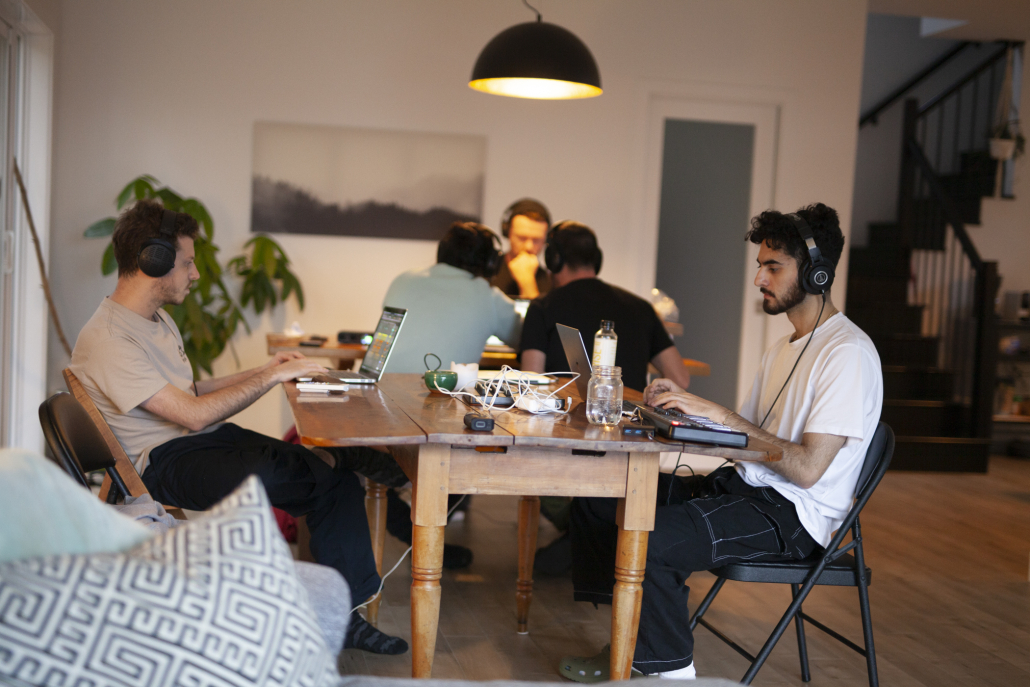
Anathol and Moox (Artist retreat 2023)
Starting with the known and studied benefits, there are several reasons why one should consider making music.
Making music has been shown to offer a wide range of cognitive, emotional, and social benefits across all stages of life. For children, learning an instrument or engaging in musical activities can enhance memory, language development, and motor coordination. It also fosters patience, focus, and emotional regulation. In older adults, making music has been linked to improved brain plasticity, delayed cognitive decline, and enhanced mood, sometimes even helping with conditions like Alzheimer’s and depression. For people of all ages, music-making serves as a powerful tool for stress relief, self-expression, and connection with others. Studies show that playing music in groups or singing together boosts oxytocin (the bonding hormone), strengthens social ties, and can even reduce feelings of loneliness and anxiety. Put, engaging in music isn’t just about creativity—it’s a form of mental and emotional hygiene, much like exercise is for the body.
Over the last decade, the electronic music scene has witnessed the rise of numerous artists, including AVICII, who have brought emerging talent to the forefront. As people emerged from the early scene of electronic music, it was not something that was planned or wanted, but it happened nonetheless.
In a way, we can say that in the community of electronic music making, people were trying to find their individuality.
In some ways, the rise to stardom of AVICII was sort of the ultimate goal to make it out there. It had made all the other big shots of DJs that were touring a farce of what popularity could gain. But what can be done more or achieve such a success remained, to me, a dissociation from the original mission and value from what the rave movement started from.
It reinforced the idea/myth that anyone with a DAW can make a hit and be pushed to have a fandom. It also created the concept that if you’re talented enough, you can make it. The gold rush to music making that was predicted in the early 2000s had finally come, but there is also a cost to that.
Today’s electronic musicians are born individuals who struggle to find their communities.
The whole system of stardom has come to feel rigged:
- Biased algorithms that push certain artists who have more money to the front.
- AI and other software are simply creating material without any vision, taking on artists’ experience to cash in.
- Any press an artist receives can be questioned as to whether the media genuinely had an interest or if they were paid off.
- If you scratch the surface, you find out that a lot of what you see, music-related, is motivated by someone who had a monetary interest and not out of the passion you can have towards the music.
This is where I, as well as many musicians, feel frustrated: we come motivated and passionate, while some people are simply capitalizing on that force, taking away all the energy involved. It’s easy to get down the rabbit hole if you aspire for stardom, and as long as you have money, some people will offer you options and temporary attention to push you into the illusion that things are working for you.
Returning to my idea of inviting everyone to make music is a way of once again putting aside elitism to focus on community building. Creativity stems from effective communication, collaboration, challenging existing ideas, and being aware of external influences. It’s a dialogue between the one and the many. We think in conversation and create in context. Our creative voices gain meaning and power when they become part of something larger.
If many people make music, this is how the community’s feelings can be restored. It’s not about one person anymore; it’s about co-creating, being resources for others’ needs, and discovering the hidden personality behind everyone’s persona.
There are numerous reasons why I believe it’s essential, but I’ll share a few.
New language
Learning to make music is like discovering a new language: it opens up doors to express things you didn’t know you could with various levels of subtle possibilities. It is widely proven that learning and practicing music have a positive impact on cognitive abilities, stimulating the brain in ways that other activities cannot, while also teaching patience and resilience, and fostering a passion for music.
Listening Skills
Making music begins by developing your listening skills and curiosity. To understand a song, you need to take time to let it unfold. You can’t rush it and have to be in the moment to appreciate the multiple nuances that complex or straightforward songs might have. It requires concentration and listening abilities, which can improve communication, as well as being more mindful of space and layers.
Collaboration
When there was a boom of interest in electronic music, it was primarily because one could turn oneself into a one-man band, being able to achieve it all without help. That was a bit of an illusion. In a way, yes, it’s doable and one can certainly accomplish that, but on the other hand, no matter what material you have, you will require endless hours of practicing to get to an average level. If that same explorer can put their ego aside, they’ll discover the pleasure of collaboration and meeting with other musicians to share skills, ideas, inspiration and general tips. It becomes a side-quest to constantly be interested in the music of others, in the hope of finding the right people who share the same tastes or vision. But when you do, it can open up incredible connections where music becomes a shared vocabulary.
Appreciation for music
Understanding how something is made gives you appreciation for the quality. While music is treated more and more as a commodity, when you know how it is done, but also all the dramas that can come with the making of a song (ex., hard drive crashes, getting lost in the rabbit hole of revisions, etc), you treat it with more respect. It also shapes your tastes for things that aren’t just emotional. Still, you’ll be interested in details, nuances, and technicalities that you ignored before because you lacked the words to use.
Communities
So, where to start?
There are a vast world of possibilities and it can be overwhelming to decide where to start. It mostly depends of your time and budget. I’ve seen for example, some people who are retired who bought a piece of hardware like the Digitakt and then spend their time learning it, playing with it and that alone can do a long run. But if we think of the minimum basis, all you’d need is a device, which could be your smartphone or laptop and find some software. There are more and more free options out there which you can explore.
Testing with free options is a good way to see if you like and enjoy the process of making music that way. Some people prefer the tactile aspect and if you still want to remain within budget, you can invest in a MIDI interface which is still cheaper than a Digitakt, and with that, you can then control your software’s different parameters. But if you think you love making music in that way, using software, I’d recommend that you look into buying a DAW like Ableton, Logic, Bitwig or FLStudio. There’s also Reaper which is affordable but is a visually less seductive for some people. On the end, if you’ve been interested in modular synths and that you would like to explore that, I would refrain to do so until you’ve played with VCV Rack, which is free and lets you test some modules, test concepts and is an incredible tool for understanding synthesis.
You can learn for a while but I’d encourage to invest time and a budget matching your investements, into online classes or some education. One of the best way to learn is to make music with a friend or someone you know that makes music. Seeing someone making music is a great way to get familiar with the process. Turning to Youtube for tutorials and seeing people work is also an option but it can be a bit overwhelming as there are more options than one can imagine.
Basic activities to learn:
- Edit a song you like.
- Play with loops.
- Goof around with a synth and see what comes out of it.
These will teach you the vocabulary and some of the essential parts to make music.

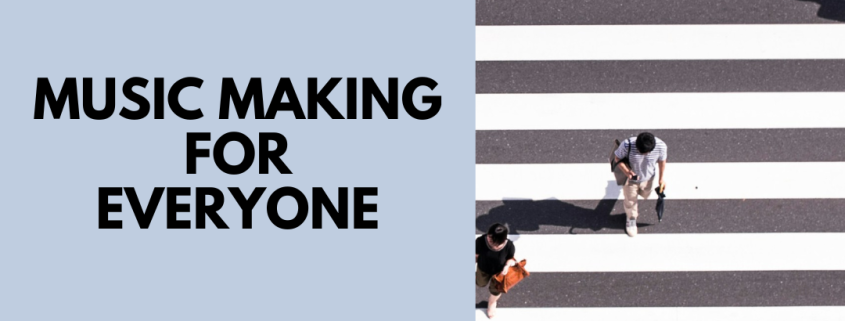
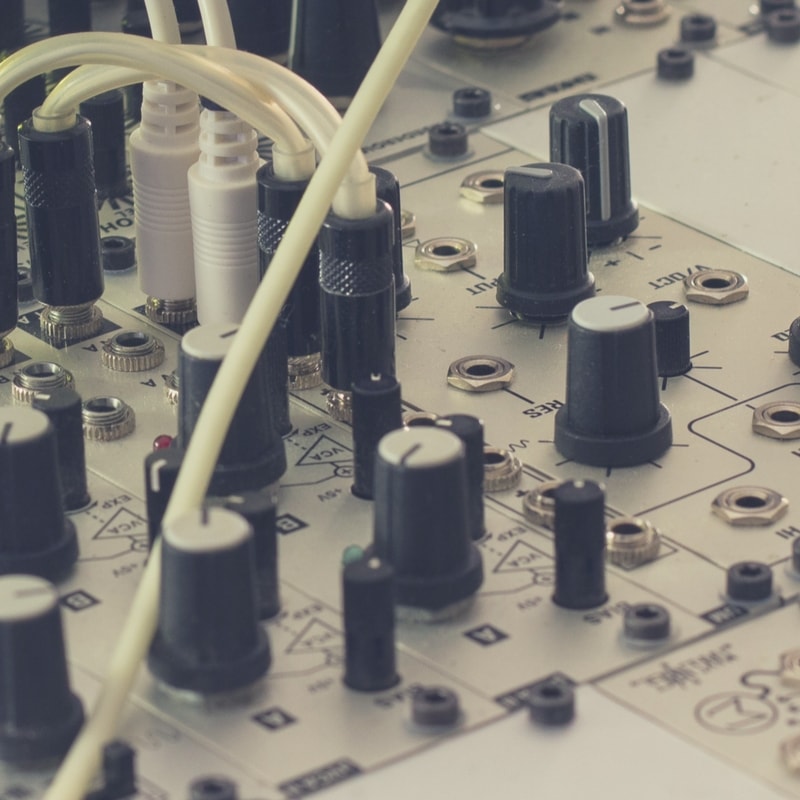
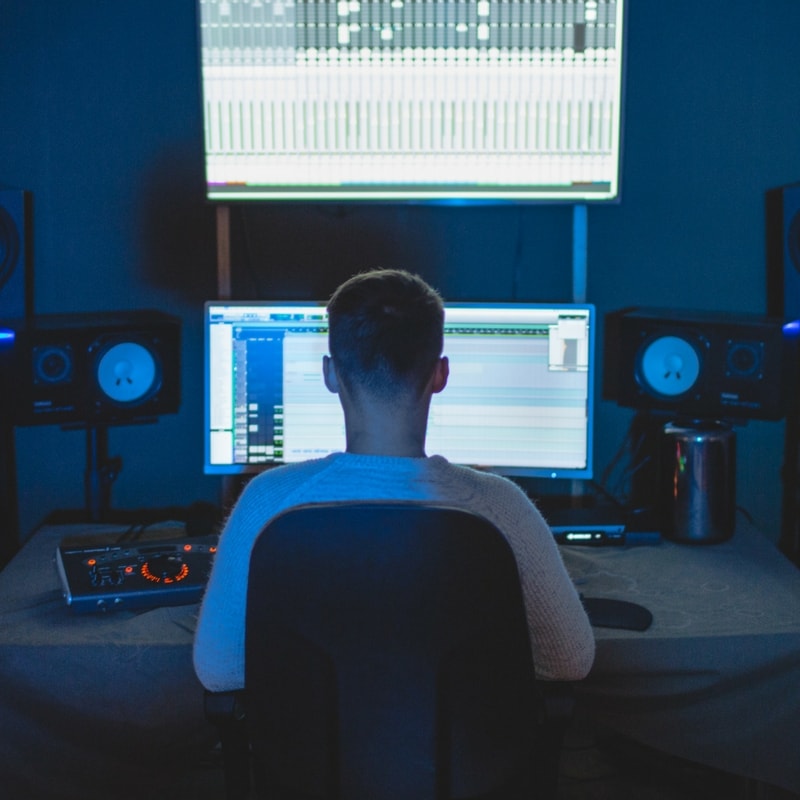
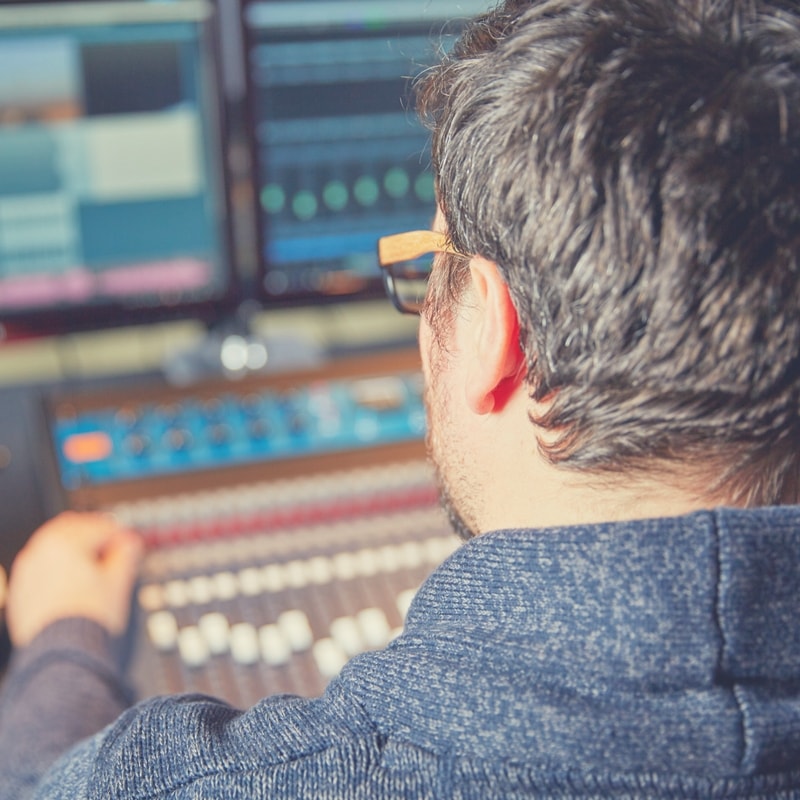
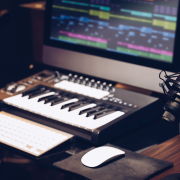
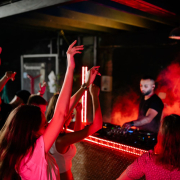

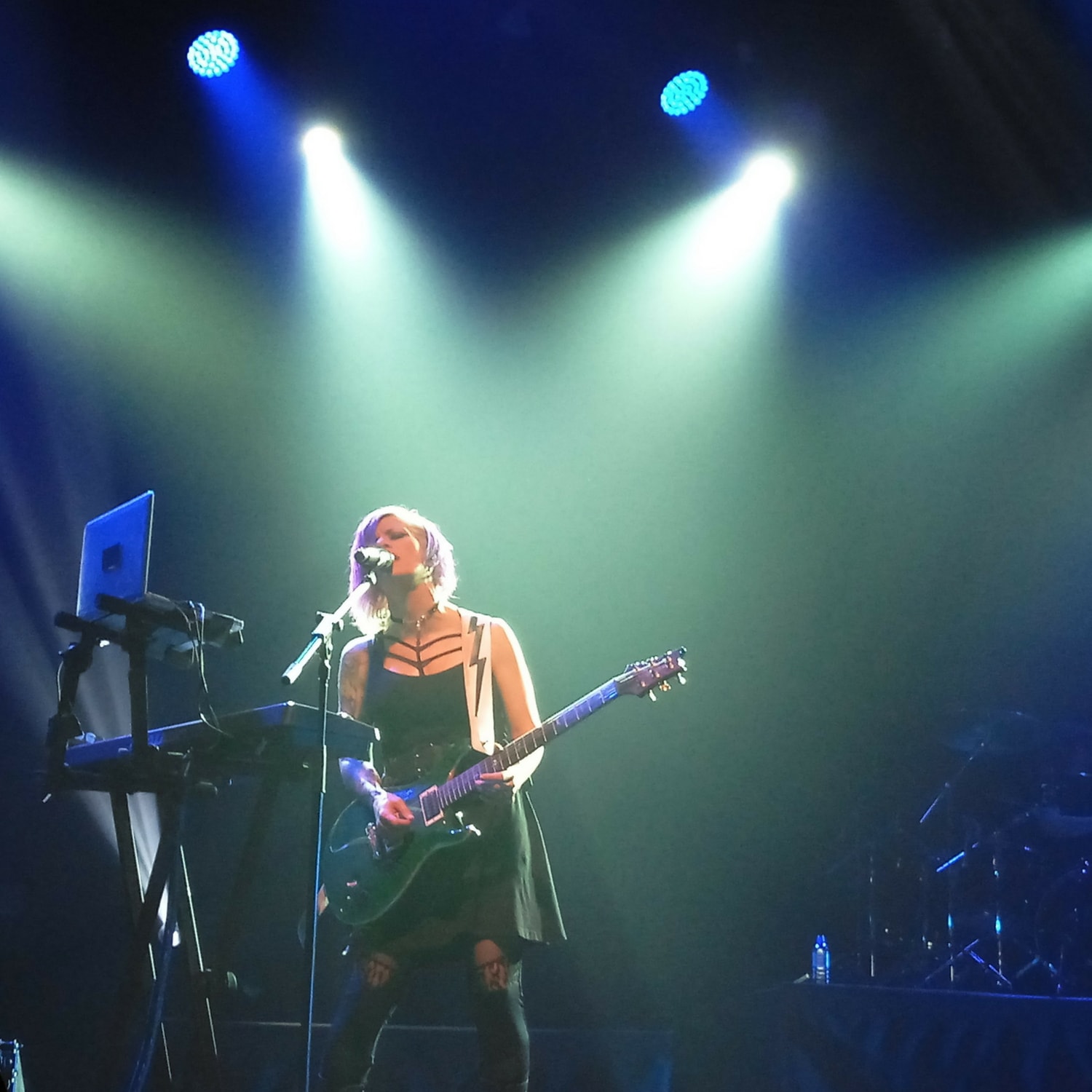
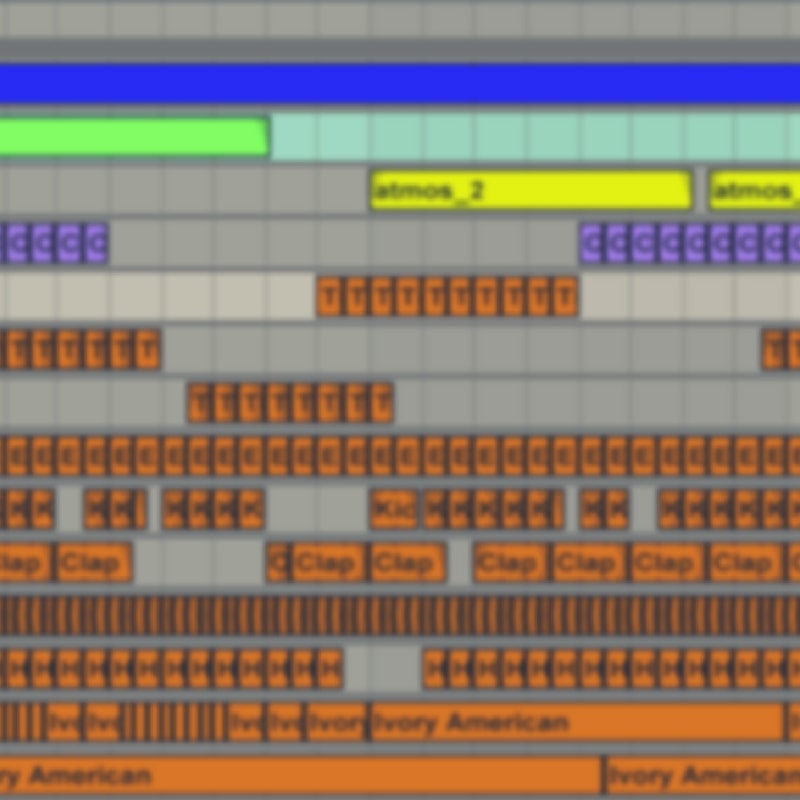


Leave a Reply
Want to join the discussion?Feel free to contribute!